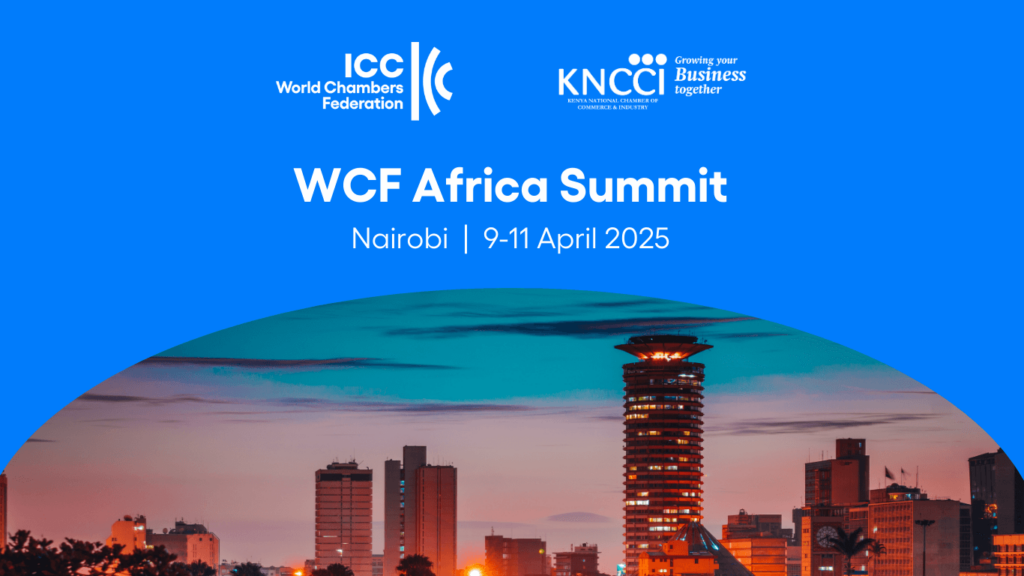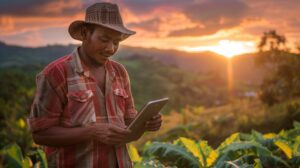As I woke up today, it struck me anew that we’re already in Quarter Two. My institution’s financial year ended quietly on March 31, bringing relief and renewed urgency. Like every business leader and MSME owner across Kenya, this transition prompts reflection — evaluating what worked, confronting what didn’t, and adjusting our sails accordingly. This crucial recalibration significantly aligns with Kenya hosting the World Chambers Federation (WCF) Africa Summit 2025 this week from April 9–11, 2025, championed by the Kenya National Chamber of Commerce and Industry (KNCCI). Although unexpected economic challenges, political uncertainties, and logistical complexities compelled a painful downsizing, the event’s core purpose remains potent: to reset and strengthen our economic compass.
Representing over one million enterprises, the KNCCI is pivotal in advocating for policies, fostering trade, and facilitating business growth. Its importance cannot be overstated, especially for MSMEs, which make up 98% of all businesses, contribute about 40% to Kenya’s GDP, and employ nearly 14.9 million people (Kenya National Bureau of Statistics, Economic Survey 2024).
The WCF Africa Summit 2025 remains an essential platform, even in a scaled-down format. It sharply focuses on unlocking intra-African trade through the African Continental Free Trade Area (AfCFTA), which could potentially add $150 billion annually to Africa’s trade by 2030 (World Bank, Africa Trade Report 2024). Kenyan businesses of all sizes are poised to benefit from such trade expansions, technology exchanges, and sustainable practices.
To fully harness these opportunities, Kenya’s business associations- specifically the Kenya Association of Manufacturers (KAM), Kenya Private Sector Alliance (KEPSA), and KNCCI, among others- must unite and avoid rivalries that diminish collective bargaining power. A unified private sector can more effectively influence policy, enhance Kenya’s business environment, and propel the nation forward.
A compelling example of strategic collaboration comes from Latvia, whose delegation will attend the summit. Latvia, a small Baltic nation with approximately 1.9 million people, showcases impressive economic growth, achieving a GDP per capita of around $23,250 in 2024 (IMF, World Economic Outlook 2024). In contrast, Kenya recorded a GDP per capita of approximately $4,975 in the same year (IMF, World Economic Outlook 2024). This stark difference underscores the potential for Kenya to enhance its economic strategies by learning from Latvia’s private-sector-driven initiatives and strong international partnerships.
Latvia’s delegation features companies excelling in sustainable agriculture, modular housing, digital technologies, innovative water solutions, and notably, ICT innovations. Renowned globally as an ICT powerhouse with a thriving startup ecosystem, Latvia contributes approximately 6% of its GDP through ICT and hosts over 6,700 tech firms (Latvia Ministry of Economics, ICT Sector Report 2024). This ecosystem has nurtured startups thriving in fintech, AI, and health technologies, establishing Latvia as a benchmark for innovation-driven growth. Collaborating with these Latvian enterprises and numerous others from around the globe presents Kenya with invaluable opportunities for knowledge transfer, technological advancement, and market growth.
Every KNCCI member, from micro-enterprises to major corporations, plays a critical role in this summit. Active engagement through the links that will be provided, social media updates, and robust media coverage- not merely as an event for the Chamber of Commerce but as a pivotal moment for Kenya’s economic future—offers access to global insights, practical networks, and direct market opportunities, empowering business owners to enhance their competitiveness and profitability.
Globally, thriving economies have robust private sectors, supported by effective governance, sound policies, and efficient public resource management. Kenya’s future prosperity also hinges on empowering its MSMEs and larger businesses through a favorable business climate, innovation-friendly policies, and supportive infrastructure.
As we navigate this pivotal second quarter of the year, let us seize the transformative potential of the WCF Africa Summit 2025. By prioritizing unity among our private sector institutions, learning from international successes like Latvia, and reshaping Kenya’s economic trajectory, we can achieve unprecedented accomplishments. Let us not be deceived; it is only we who read these words right now that hold the true power to transform our nation. Think green, act green!



